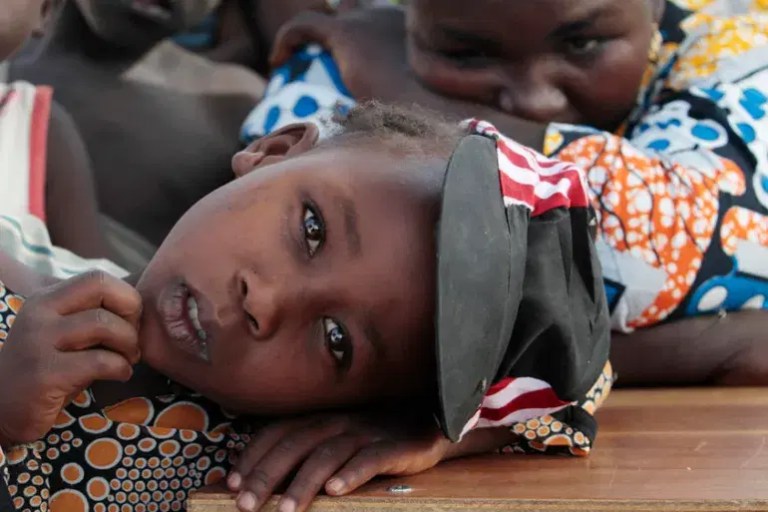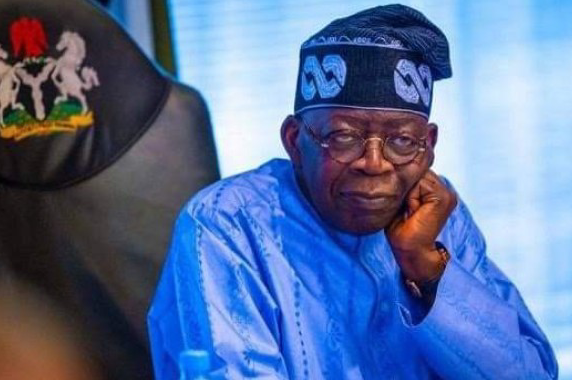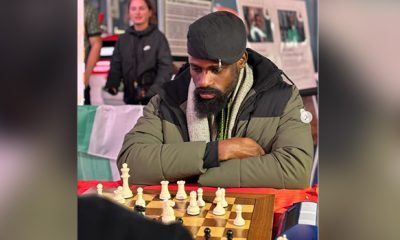News
Report Reveals Why 53.9% Of Nigerian Children Live In Multi-Dimensional Poverty

The Situation Analysis (SitAn) of Children in Nigeria Report has revealed the factors contributing to the staggering 53.9% of children in the country living in multi-dimensional poverty.
Released during the 2024 World Children’s Day celebrations on November 20, this report is a policy document developed by the Federal Government with assistance from the United Nations Children’s Fund (UNICEF) to identify and analyze child-related issues.
According to the report, several key factors such as corruption, unemployment, lack of political will, violence, insurgency, and insufficient investment in social sectors significantly contribute to child poverty in Nigeria. Furthermore, issues like displacement and resettlement add to the strain on limited resources, worsening child poverty across the nation.
The report characterizes child poverty as “a condition where children are deprived of the material, emotional, and spiritual resources necessary to survive, develop, and thrive, thereby hindering their ability to enjoy their rights, reach their full potential, and participate as equal members of society.”
Advertisement
It identifies seven indicators of child poverty: health, water, sanitation, nutrition, shelter, education, and information.
In detailing the Multidimensional Poverty Index (MPI) analysis, the report notes that disparities in child poverty rates exist across Nigeria’s 36 states and the Federal Capital Territory (FCT). For instance, Osun State reports the lowest poverty incidence at 17.5%, with a deprivation rate of 35.5% and an HDI ranking of 14th. In contrast, Sokoto State experiences a high poverty incidence of 89.9% and a deprivation rate of 50.4%, ranking 37th in HDI.
The report indicates a stark difference between urban and rural areas, with 29.7% of urban children classified as multi-dimensionally poor compared to 65.7% of rural children. Notably, children in Sokoto (80.4%), Kebbi (74.9%), and Zamfara (74%) face the most severe deprivation.
Conversely, fewer than 20% of children in Edo (19%) and Lagos (17.3%) live in multi-dimensional poverty. Children in Sokoto experience deprivation in 74.1% of the total indicators, whereas the figure is only 57.7% for those in Lagos.
Advertisement
The report also observes that larger households, especially those with uneducated heads, exhibit higher rates of multi-dimensional deprivation. It highlights that children with illiterate mothers are more likely to suffer from poverty than those with educated mothers.
A particularly alarming situation is presented regarding Almajiri children, who are often homeless and lack basic necessities such as proper housing, nutrition, clean water, sanitation, healthcare, education, and parental care. They frequently face violence and abuse and are vulnerable to exploitation during conflicts.
To address these issues, the report calls for action from various stakeholders. Families and caregivers are deemed essential in alleviating child poverty and ensuring children’s protection. Public healthcare, education, and social services are critical for helping children escape poverty, and these services must be inclusive, affordable, and accessible.
Effective governance at all levels is necessary to implement sound policies, ensure equitable resource distribution, and invest in household livelihoods—ultimately reducing poverty and promoting children’s rights. The government is urged to provide sustainable minimum income support to families, mitigating financial barriers that hinder children’s development.
The SitAn report was first published in 2022, relying on data from the Multiple Indicator Cluster Survey (MICS 2016-2017) and the Demographic and Health Survey (DHS 2018). An updated version was launched in 2024 to further bolster governmental efforts in shaping policies and directing investments to benefit Nigerian children.
News
Watch current episode of Your family Lawyer as Chinye breaks down intricacies of bloodlines, DNA tests

Again, Chuma Chinye a seasoned lawyer in last Saturday’s podcast of Your family Lawyer adequately thrashed out intricacies associated with DNA tests and bloodlines in family matters.
WATCH:
News
Protests erupt in Plateau over incessant k!llings

Protests erupted in Jos, the Plateau State capital, on Monday morning over the continued killings of indigenous residents by gunmen suspected to be Fulani militants.
The demonstrations, led by Christian leaders including the state chairman of the Christian Association of Nigeria, Rev. Polycarp Lubo, commenced on Monday morning at the Fawvwei Junction community road, causing a heavy gridlock and stranding commuters.
The latest protest comes amid a surge in violent attacks by gunmen in various communities, with over 100 people killed in Bokkos and Bassa LGAS in the past two weeks.
“We are not happy over the continuous attacks and killings by gunmen in our communities. That’s why we have come out again to protest these happenings,” said Gyang Dalyop, one of the protesters.
Another protester, Hannatu Philip, called on the government to intervene before it spirals out of control.
The protesters brandishing placards with different inscriptions were seen marching towards the Rayfield Government House.
News
Tinubu not your equal – Presidency replies Peter Obi’s ex-running mate, Datti

The Presidency has said the former Labour Party, LP, presidential running mate, Yusuf Datti Baba-Ahmed is no match for President Bola Tinubu.
Tinubu’s Special Adviser on Media and Public Communication, Sunday Dare was reacting to Datti’s remark that he (Tinubu) would not run for the presidency in 2027.
The former LP running mate insisted that Tinubu’s time is up, adding that everything is there for the president and the ruling All Progressives Party, APC, to see that they lose in 2027.
Dismissing such remark, Dare likened Datti’s comment to the new year predictions of charlatan ‘prophets’ which never come through.
In a statement he signed, Dare said the likes of Peter Obi and Datti would have been president left for the latter’s theories.
According to Dare, Datti has chosen to venture into an unfamiliar terrain.
The statement reads partly: “Yusuf Datti Baba-Ahmed’s “illogical logic” was all over the place in his recent interview with a television channel.
“Listening to Yusuf Datti Baba- Ahmed spurn his postulations about the political future of Nigeria and that of the incumbent President is like listening to the new year predictions of charlatan ‘prophets’ which never come through. Yusuf Baba Ahmed and his co-traveller Peter Obi are indeed a “double whammy“ in the Nigerian political space.
“He chose to base his political calculations on President Bola Tinubu not winning a second term given his antecedents and because Nigerians will decide at the polls among other things. He conveniently avoided the substance of performance and capacity.
“Unfortunately, he chose to walk into a lane he was unfamiliar with and chose to confront a politician he is no match for.”
Similarly, the Presidency had also stressed that Tinubu will reveal his plans for a second term at the right time.
It said the APC 2027 presidential campaign billboards had no links to Tinubu and Vice President Kashim Shettima.
-

 News7 hours ago
News7 hours agoBREAKING! Pope Francis is dead
-

 News12 hours ago
News12 hours agoRetirees with outstanding loans may lose property – FG
-

 News21 hours ago
News21 hours agoIsrael’s remote controlled bulldozers breaking ground in Gaza war
-

 News4 hours ago
News4 hours agoUPDATED: How Pope Francis transited, last activity, health challenges, others
-

 News12 hours ago
News12 hours agoSad as hotelier slumps, dies at wife’s 60th birthday thanksgiving
-

 Sports24 hours ago
Sports24 hours agoEPL Results: Chelsea Boost UCL Hopes, Arsenal Win Big, Man United Lost
-

 News21 hours ago
News21 hours ago70-hour Chess Marathon: Onakoya reportedly breaks record set by Norwegians
-

 Metro12 hours ago
Metro12 hours ago77-year-old Nigerian Uber driver shot dead in US, passenger in critical condition


















